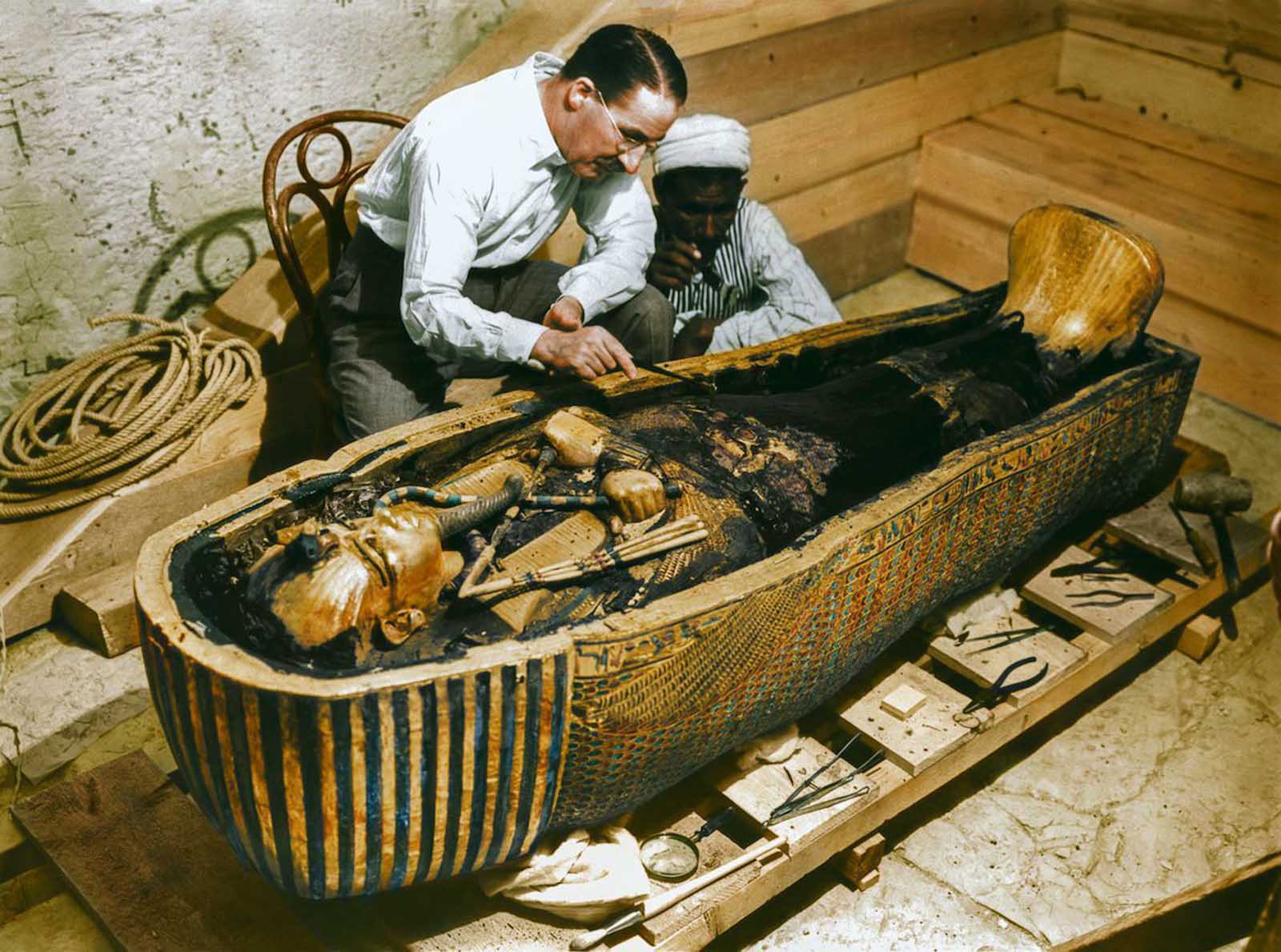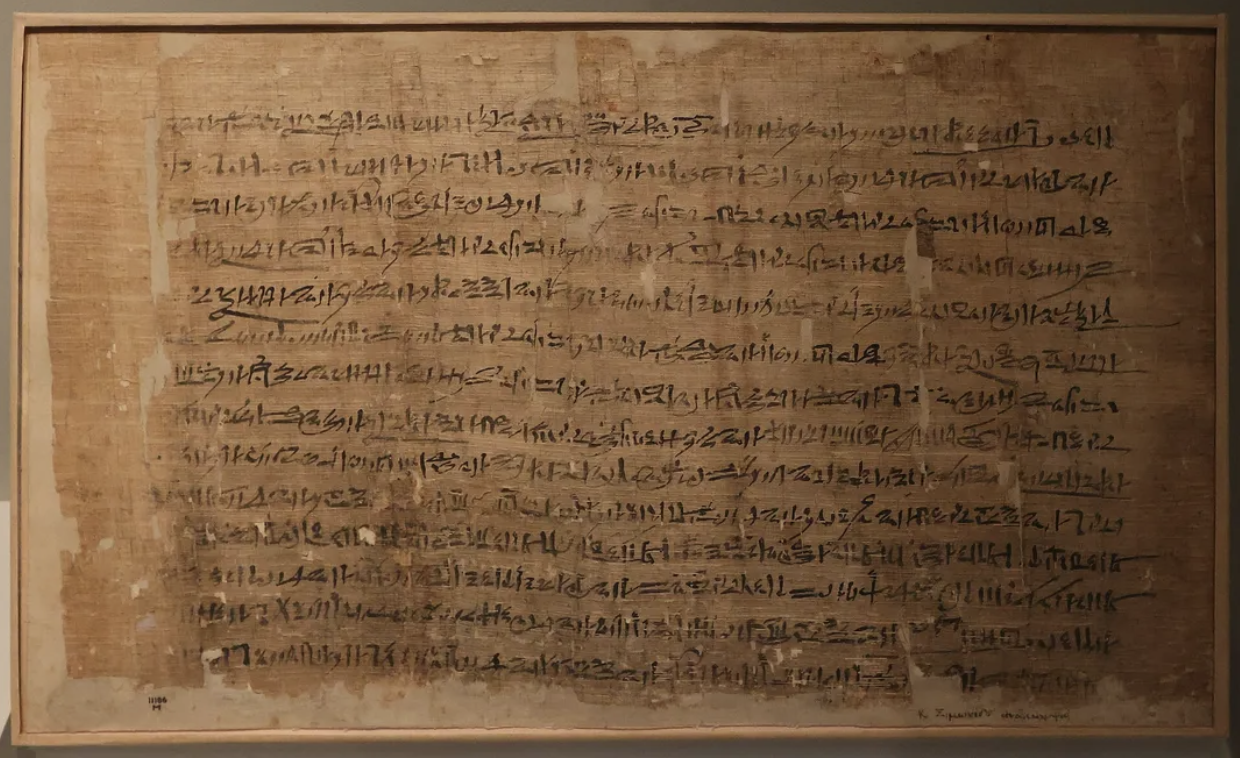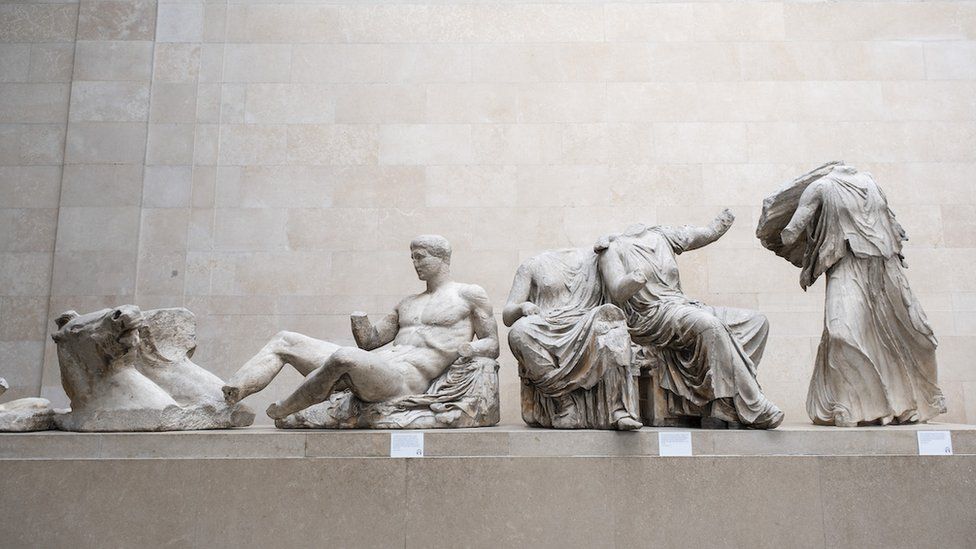“The Acropolis Museum is exceptionally well designed and contains impressive displays…but it is incapable of setting the Parthenon sculptures in the much wider setting of the development of civilisation in the Mediterranean and far beyond that the British Museum illustrates.” ~The Telegraph
Not New To History
For millennia, cultural property destruction and plunder were considered a side effect and even a perk of war.
"I think that culture and the erasure of culture is often an arm of war because it removes the identity of the people who are under assault."
Personal interview with Marc Porter, Chairman of Christie's Americas, ~Gorden, May 8, 2025
Egypt

Howard Carter and a worker examine the solid gold innermost sarcophagus of King Tut.
~Rare Historical Photos
“I found in one of the tombs an inscription saying, 'If you touch my tomb, you will be eaten by a crocodile and hippopotamus.' It doesn't mean the hippo will eat you, it means the person really wanted his tomb to be protected.”
Zahi Hawass, Egyptologist ~Brainyquotes

Papyrus Mayer B, a legal document detailing the trials of tomb robbers during Egypt's 20th Dynasty.
~Smithsonian Magazine
Elgin Marbles

~BBC News
The Elgin Marbles, removed from the Parthenon in the 19th century, serve as an example of the complex ethical debate. Negotiations to return them to Greece, their rightful home, are still ongoing.
"More than 200 years after they were torn from their country's most sacred landmark and shipped unceremoniously to the UK, the Elgin Marbles still scream injustice for the vast majority of Greeks." ~BBC
Responsibility is not Binary
“They (countries) start to seek the understanding of their own cultures that they don’t necessarily want all objects returned to the source country but rather an education of the audience that sees them in another place…It’s not a binary ‘take something and return it’, but rather a huge range of possibilities about what best serves a good faith holder, an original owner, and the public.” ~Personal Interview, Marc Porter, ~Gorden, May 8, 2025